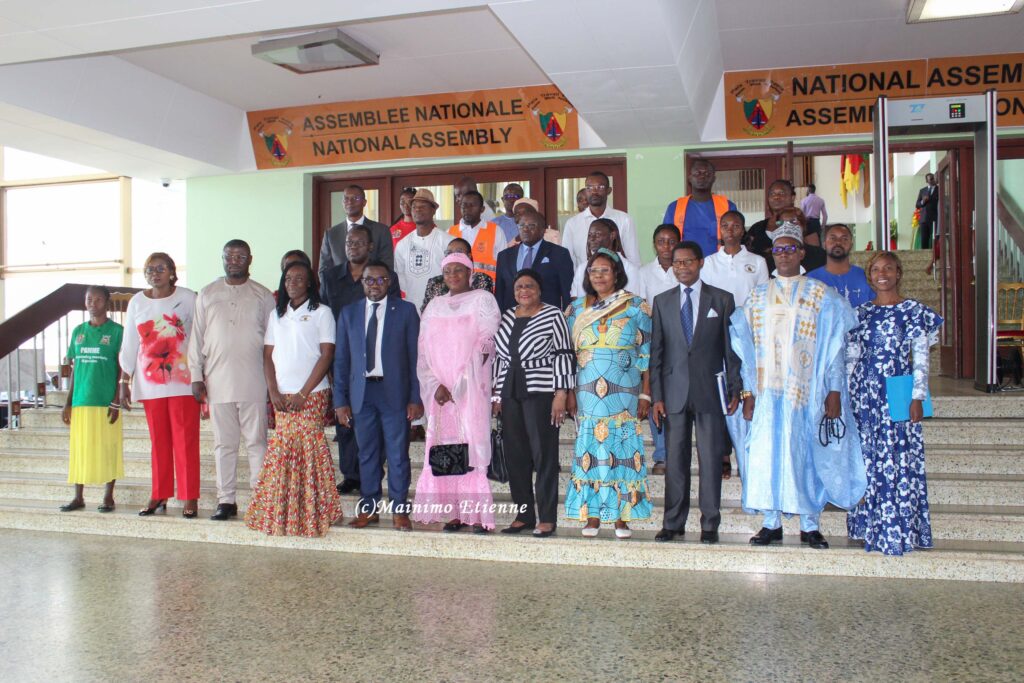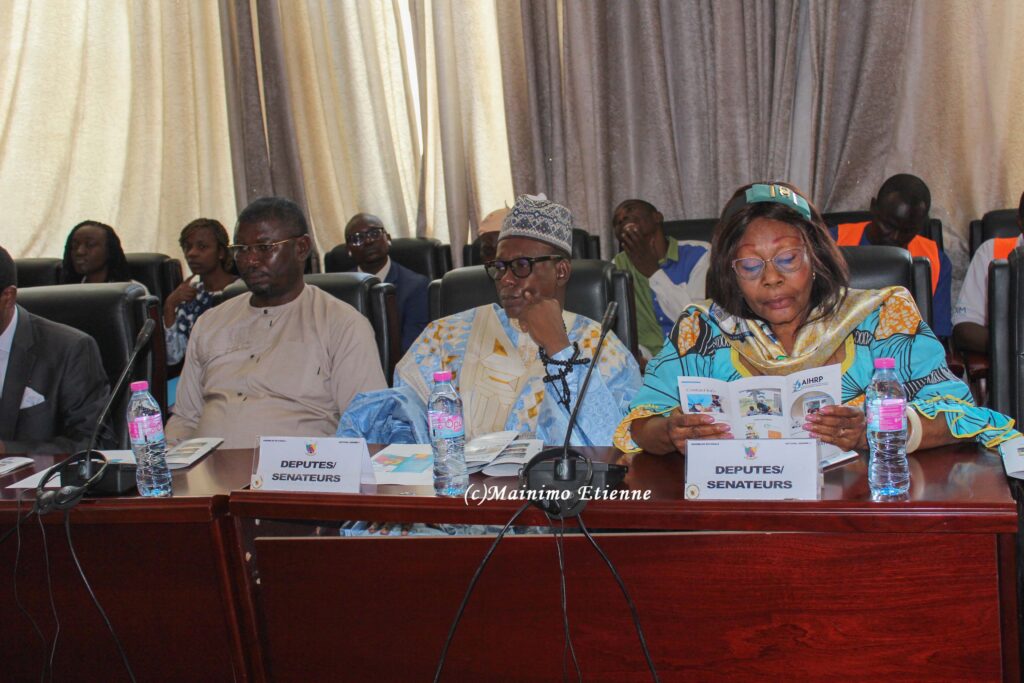By Etienne Mainimo Mengnjo
The President of the Afrogiveness Movement, Franca Ma-ih Sulem Yong, has stated that mental health is a cornerstone of development. She made this assertion on December 3 in Yaoundé while addressing parliamentarians and other stakeholders during the first Mental Health Rights Congress (MEHRIC) in Cameroon.

“Beyond peace, mental health is a cornerstone of development. Our nation cannot achieve its full potential if our people are unwell,” she said.
“Poor mental health costs the global economy $1 trillion annually, and Cameroon bears its share of this burden. Workers grappling with depression or anxiety are less productive, and students struggling with untreated mental health conditions underperform, jeopardizing the promise of a skilled and educated workforce,” she added.
Franca Ma-ih Sulem emphasized that investing in mental health is not just a moral imperative; it is an economic necessity, as every dollar spent on mental health yields a fourfold return in increased productivity and well-being. “For Cameroon, this means stronger communities, healthier families, a more resilient nation, and a brighter future,” she added.
According to Franca Ma-ih Sulem, addressing mental health could be our pathway to sustainable peace, given that everything starts from the mind. “Mental health, often overlooked and stigmatized, is a critical determinant of our well-being, our productivity, and the overall peace and development of our nation,” she indicated.

However, she stated that the impact of mental health challenges on individuals, families, and communities cannot be overstated. From the silent struggles of depression to the debilitating effects of anxiety and psychosis, mental health issues affect everyone.
Despite the direct link between mental health and peace, Franca Ma-ih Sulem noted that mental health remains neglected, suspected, and stigmatized in Cameroon. “The consequences of neglecting mental health are far-reaching. It has led to violence, conflict, and instability. Our neglect of mental health has hindered economic growth and social progress,” she said.
According to her, a mental health law in Cameroon is not just about services; it is about justice, dignity, and inclusion. The law should define what a mental health condition is, protect the rights, and state the responsibilities of persons living with a mental health condition, as well as protect the rights and define the responsibilities of mental health practitioners.
The law should also regulate the practice of mental health treatment, govern the administration of mental health in Cameroon, define the allocation of resources for mental health, protect the rights of communities in the face of mental illness, and ensure that mental health is an essential part of peace and development programs.

“As lawmakers and policymakers, you hold the power to shape our nation’s destiny. You can ensure that mental health is no longer an afterthought but a central pillar of our development strategy. By championing mental health legislation, you will be safeguarding the future of millions of Cameroonians and building a legacy of peace and progress,” she said.
The first Mental Health Rights Congress in Cameroon was orgainsed by Afrogiveness Movement, and the African Initiative for Health and Research Promotion (AIHRP) in partnership with the Network of Parliamentarians on Population, Development, and Public Health Issues (RPPDS).
While the congress was aimed at mobilizing stakeholders from various sectors to understand the importance of a standalone mental health law, it was also geared towards engaging survivors of mental illness to advocate for their mental health rights before the National Assembly.
Given the unique nature of mental health, advocates argue for standalone legislation separate from general health or disability laws. They contend that mental health is specific, as many Cameroonians of all ages have likely experienced trauma or mental health issues, many of which remain undiagnosed.

